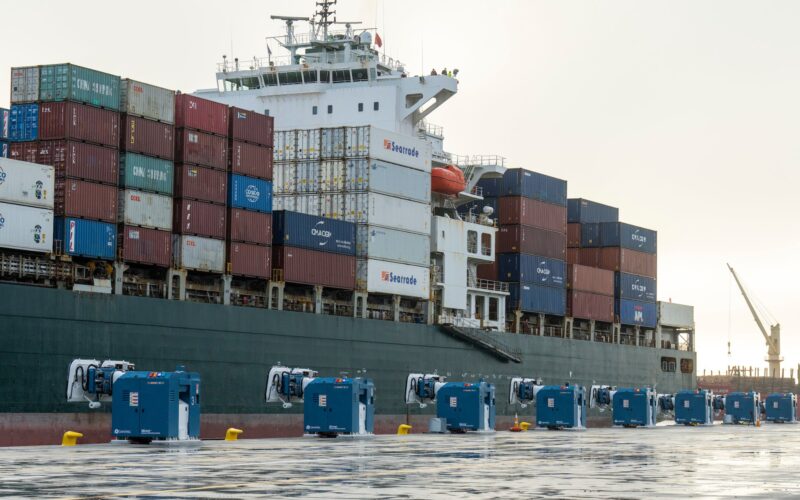Shipping rates are soaring and supply chains could be disrupted for the next few months as key shipping routes are threatened by military tensions in the Red Sea and drought in Panama.
Kotahi chief executive Dave Ross said 80% of container vessels have diverted from the Red Sea and access to Suez Canal due to military tension off the Yemen coast, opting for the longer route around the Cape of Good Hope at the foot of Africa.
Meanwhile, Ross said, drought in Central America has caused the Panama Canal Authority to reduce daily transit capacity to 18 per day, down from normal operating transits of 38 to 40 per day.
“These changes mean routes to Europe and east coast America are most impacted.”
A report by market analyst Container xChange reveals the average rate for a container on the China-Europe route has this week increased from $US1500 to US$5400 ($2400 to $8652) due to tensions off the coast of Yemen.
It also reports that orders for new containers have increased as ships take the longer route around Africa, while the race to fill orders for Chinese New Year is driving up demand for containers.
Ross said what was thought to be short-term supply chain disruption accessing the Suez and Panama canals is becoming more serious and the shipping logistics company expects disruption to continue through the first quarter of the year.
“At the moment we’re still moving cargo to European markets, but with longer transit times of 10 days to two weeks and additional surcharges in line with the additional cost.”
Ross said Kotahi is working with its customers and carrier partners to manage cargo movements.
If the disruption is prolonged, he said, there could be shifts in cargo destination mix for exports.
“New Zealand exporters will be increasingly competitive into Asia markets, compared to east coast America and Europe supply. There is potential for exporters to leverage this change in dynamics.”
The situation is changing daily.
“We are well set up with the resources and a backbone carrier network, with strategic partners like Maersk, to manage through this period of disruption, to enable us to keep New Zealand products moving,” he said.
Meat Industry Association chief executive Sirma Karapeeva said if shipping lines choose not to pass through the Red Sea, it will mean extra costs and longer transit times for meat exports to Europe, potentially affecting chilled product.
Prolonged disruptions could have wider implications for NZ if it starts hindering the shipping of Indian buffalo beef going to the Middle East.
“If this particular trade is impacted, we could see Indian exports diverted to other markets where they compete with Brazilian beef and this could have a flow-on effect on New Zealand beef exports in our global markets,” Karapeeva said.










